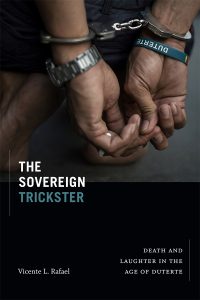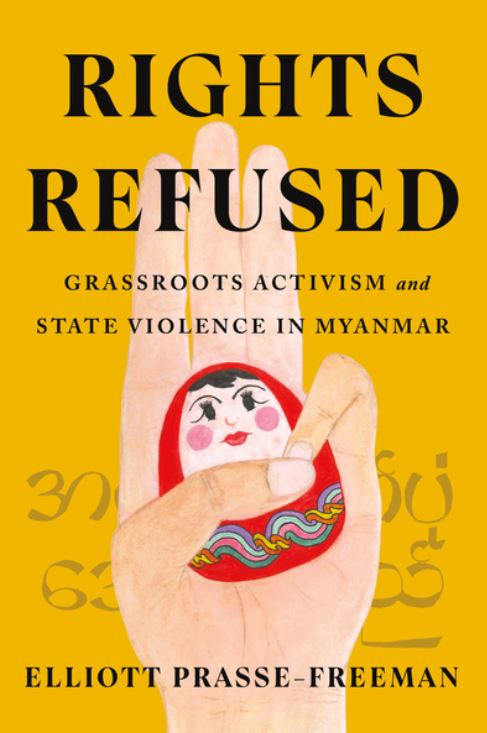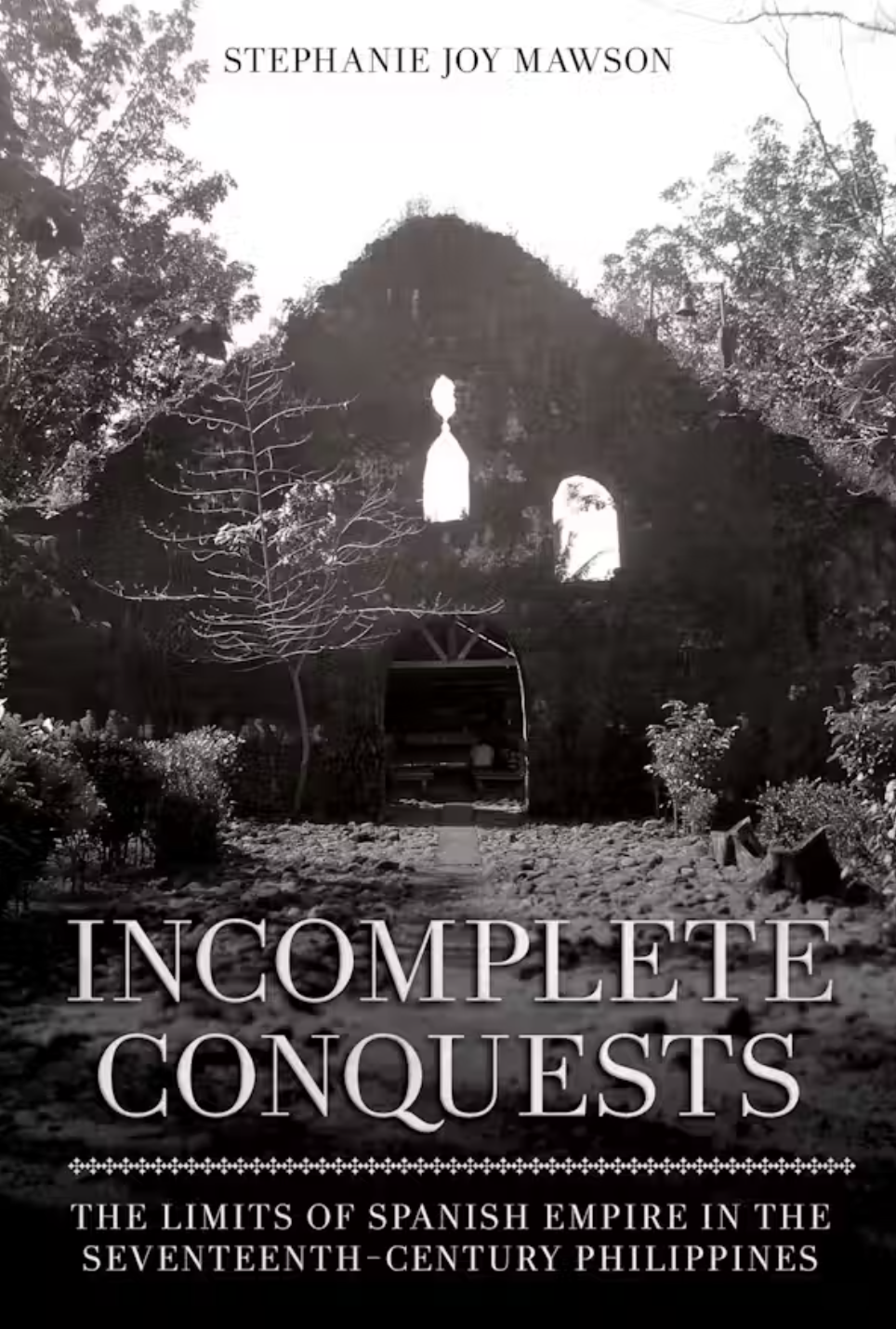Duterte’s outrageousness, in Rafael’s analysis, is a calculated political stratagem that grows organically from the soil of masculine insecurity. It is an integral part of the rule, not the exception, writes Lin Hongxuan reviewing The Sovereign Trickster: Death and Laughter in the Age of Duterte by Vicente Rafael
_______________________________________________
Making sense of Rodrigo Duterte’s continuing popularity is difficult, and comparisons with Donald Trump abound given their shared irreverence for democratic and judicial norms. Vicente Rafael’s The Sovereign Trickster provides readers with an erudite, in-depth, and historically-contextualized analysis of how Duterte’s persona operates, and why it is so appealing to so many.

Chapters one and two provide essential historical context, framing Filipino history in a tight narrative arc of pre- and post-Marcos elite competition to situate Duterte historically. This arc showcases the roots of his power and popularity as well as the political economy of the Philippines which made Duterte’s rise possible. Despite his decidedly thuggish attitude and deliberately disgusting humour, which break decisively with the celebrity status cultivated (in different ways) by Ramon Magsaysay and Ferdinand Marcos, Duterte is enmeshed in elite politics and very much the product of the provincial elite who have been powerful players in Filipino politics for a century. Drawing on arguments he previously made about language and counterinsurgency in Motherless Tongues (2016), Rafael elegantly lays out the essential background to understanding Duterte’s Janus-faced insider/outsider status, an essential part of his popular/elite appeal, in two short chapters.
These chapters also include as pithy a definition of Neoliberalism as can be found anywhere: “As Michel Foucault and Wendy Brown have pointed out, neoliberalism is not simply a variation of liberalism, nor is it merely an economic system. It is, rather, a mode of governance that establishes relations of power based on the “conduct of conduct.” It seeks to alter behaviour by working through the agency of the individual — “empowering” them, as the cliché goes — and indeed, individualizing rather than collectivizing social agency by stressing the need to assume responsibility for one’s life and “accountability” for one’s actions. In this way, neoliberalism transforms the individual into a kind of entrepreneurial subject engaged in the accumulation of his or her “human capital” — through education, for example, business enterprises and self-help projects, and so on” (pg. 27–28). It is the pervasive assumptions of neoliberalism that underpin Duterte’s style of governance, allowing him to frame the Philippines’s complex drug problems in terms of the personal failings of addicts – who are therefore undeserving of life. Simultaneously, these assumptions make Duterte’s rationalization for extrajudicial killings plausible to his supporters.
Chapters three and four are the heart of the book, explaining the operations of Duterte’s carefully cultivated image and humour. Here Rafael focuses on how Duterte’s humour works, rather than why people find it so engaging. These chapters contain an excellent application of Foucault’s idea of biopower and Mbembe’s idea of necropower to Duterte’s campaign of extrajudicial killings. Rafael’s analytical framing helps readers make sense of the subtext and implications of what Duterte is saying and signalling, especially for non-Tagalog speakers who cannot easily parse the nuances of his words and body language. Chapter three contains memorably concise explanations of how necropower relates to Duterte’s sexualized humour: “This intimacy with death… is built on his claim of conquering death by controlling his fear of it. He may be dying, his body may already be failing. But just as he is still capable of erections, aided by Viagra, he is still capable of killing, and certainly ordering killings. In other words, he demonstrates his capacity to govern life by administering death” (pg. 56). The efficacy of Duterte’s humour is grounded in the political economy of extrajudicial killing: Rafael demonstrates the interconnectedness of regional politicians jockeying for influence, kill lists, police side-hustles, funeral homes, and organized gambling at funerals to show how the corpses generated by extra-judicial killings are monetized (pg. 73–74).
These chapters contain an especially valuable explanation of why people laugh at, and with, Duterte. This is a question that cannot be effectively answered through polling or interviews; people often cannot quite explain why they find Duterte amusing, if only because the truth might involve revealing unsavoury aspects of themselves. A degree of theoretical sophistication is necessary to investigate the appeal of Duterte’s humour, and Rafael does this particularly well in his analysis of Duterte’s oft-told story of his sexual abuse at hands of an American Jesuit priest. Rafael writes: “As part of the audience, you have no choice but to wait for him — and he is always late — then listen to him take his time unspooling his tales. Unable to leave without drawing his ire, you remain a captive audience. Jokes then become a way of establishing his authority. He exposes himself, renders himself vulnerable, and risks dissolving his authority, but only to recover and reassert his mastery over the scene of exposure. This dialectic of disclosure and domination allows him to forge a tyranny of intimacy, extracting your consent, registered by your laughter.” (pg. 52–53).
It is dense yet sensible arguments like this which make The Sovereign Trickster compelling.
The book’s core argument appears on pages 79–81. This is an eloquent explanation of why Duterte is a trickster embodying the picaresque pusong character of Filipino folklore and deploying what Mbembe calls the “aesthetic of vulgarity.” In Rafael’s memorable turn of phrase, Duterte is the “dissipator-in-chief:” “Duterte converts dissipation into an aspect of his authority even as he orders the arrest and prosecution of others who would dare muscle into his monopoly of dissipation such as addicts” (pg. 81). This operation of necropower is expanded on in chapter five, which explores “the paradoxical workings of a biopolitics of fear — the way in which the shock of the killings triggered what we might think of as trauma but how trauma generated the desire for security” (pg. 133). This serves to reinforce Duterte’s popularity – or at least force the bereaved to accept the necessity of biopolitical violence.
Chapters two and three parse the dynamics of gender roles and the nature of toxic masculinity in the Philippines particularly well, showing the subtle interplay of desire, frustration, and sexual violence with Filipino masculinity. Rafael illustrates how Duterte’s phallic talk is appealing rather than off-putting to specific audiences – put simply, the Filipino fixation with male virility is what allows Duterte’s brand of humour to work so well. Rafael’s analysis of erstwhile Senator Leila de Lima, a vocal opponent of Duterte, is instructive in this regard: “De Lima’s punishment included her public humiliation. The president and his cabinet circulated salacious stories about her affair with her driver, claiming to have sex tapes of the two. De Lima’s guilt is thus less about drug dealing — which the administration is hard pressed to prove — than it is about acting upon her desire. She not only defied the authority of the president, she also dared to transgress sexual and class lines in taking up with a member of the lower class. In other words, she disrupted the patriarchal and elite order of things, poaching upon traditional male entitlements. And for that she had to be punished severely” (46). Duterte’s outrageousness, in Rafael’s analysis, is a calculated political stratagem that grows organically from the soil of masculine insecurity. It is an integral part of the rule, not the exception.
This slim volume is likely to have broad appeal beyond academia. Concise without being terse, it is an approachable read for anyone interested in how Duterte has grasped and held on to power for so long.
The structure of the book, with chapters interspersed with short “sketches,” usually in the form of journalistic editorials by the author, works well. At their best, the sketches act as anchors, drawing the reader’s attention back to specific components of the Rafael’s multifaceted argument, illustrating their interconnectedness, before readers move on to the next chapter. Graduate students in history, sociology and political science who study how authoritarianism and autocrats become entrenched will find this an essential case study. Anyone with an interest in recent Philippine history should find The Sovereign Trickster incredibly entertaining, accessible – it is a rare writer who can juxtapose Foucault and Mbembe and explain the relevance of their ideas clearly – and analytically illuminating. This is a book that grapples with serious questions of relevance to many societies, but does so with an eloquence that makes it a pleasure to read.
______________________________________________
* This book review is published by the LSE Southeast Asia blog and LSE Review of Books blog as part of a collaborative series focusing on timely and important social science books from and about Southeast Asia.
* Banner photo front cover of The Sovereign Trickster: Death and Laughter in the Age of Duterte by Vicente Rafael.
*The views expressed in the blog are those of the author alone. They do not reflect the position of the Saw Swee Hock Southeast Asia Centre, nor that of the London School of Economics and Political Science.
- * Vicente Rafael presented his work at a Saw Swee Hock Southeast Asia Centre Seminar on Wednesday 25 May 2022. Further information including a link to the video recording can be found here.





